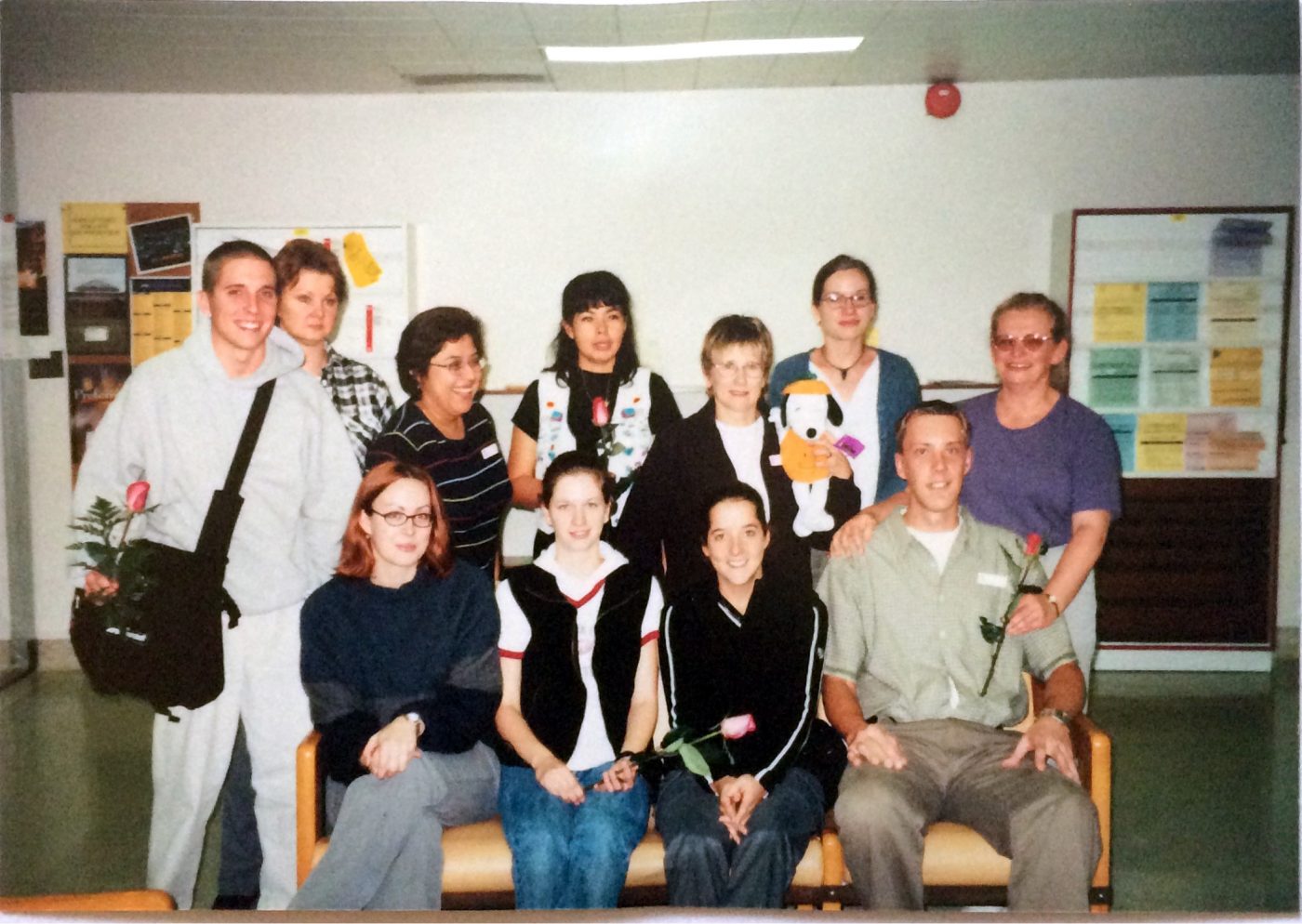A Letter to My Grandmother

My grandmother died from Huntington’s disease (HD) complications in 1987. I was 13 years old at the time, so my memories of her are few and limited to a time in her journey when she was more advanced in her symptoms. I have no personal recollections of what she was like prior to HD taking control of her, which is tragic.
What I do remember is her being locked up in a psychiatric hospital. She was admitted to the hospital in 1972 following an incident in which she fell asleep on the couch with a lit cigarette, causing a fire. This was one factor among many that led her to become institutionalized.
While she was there, I occasionally would be taken to visit her. Wow! I detested every minute of those visits. Every single second.
I can clearly envision the scene in my mind. There was Grandma, slouched in a wheelchair. Her body was present, but I’m not sure where her mind was. I imagine she was heavily medicated. The chair had a table attached to the arms that acted more like a restraint than a place to put food. I heard moans coming from somewhere; I was never sure where. The smells were a mix of medicated cream, hospital food, and incontinence.
The hospital had a long, white hallway. Both ends of the hallway opened into a circular hub, from which the actual patient areas branched off, like the spokes of a wheel. Grandma was down one of those spokes.
My grandmother was adopted, so her HD diagnosis would have been unexpected. I never had a conversation with my grandfather about it; he passed away in 2006. I can imagine it must have been horrible for him, as a spouse and a caregiver, to watch her become symptomatic and continue to decline. Initially, they probably had no idea what was happening to her.
After my grandmother died, my visits to the mental health hospital stopped. Given the location of the institution, however, I would often drive by it. Every time I did, the memories of my time visiting there caused me anxiety. I certainly never thought that I would return there someday.
My career path
I started nursing school in 1998, and part of the process was moving around to different clinical areas, getting hands-on experience, and learning the profession on the front lines. Mental health was one of these clinical areas, and was my final placement in my last year. I was assigned to spend two days per week, for three months, at the same psychiatric hospital my grandmother was in years ago.
As soon as I entered the building, the familiarity of the place struck me. Nothing had changed. It was as if I’d been there the day before, not 13 years earlier. The long white hallway, the circular hubs with branching spokes, the smells — all there.
It took me a few weeks to become comfortable with my return to the place that had caused me anxiety earlier in life. My psychiatric hospital rotation proved to be one of my favorites, though, and I even considered mental health nursing as a career path upon graduation.
Maybe it was the personal connection that I felt to the place. It’s natural to feel empathetic toward a group of patients and their families when you’ve had a similar experience firsthand.
My career ambitions took me elsewhere, however, and not too long after my graduation, the old psychiatric hospital closed its doors for good. I never set foot in there again after that nursing school rotation, but I learned a great deal from my time there, both personally and academically.
I have no memories of an actual conversation with my grandmother. I don’t recall getting a hug or a kiss from her. If I was able to send a letter to her now, though, this is what it would say:
I’m sorry, Grandma.
I know I have nothing to apologize for, but I feel the need to say it. I was too young to give you any support in those days and it saddens me. Perhaps my presence there at the hospital did give you some comfort, but you weren’t able to make that known. I hope that was the case.
I became a better man because of my experiences with you during those early years of mine and I hope you can take some peace from that.
Thank you, Grandma.
Love,
Steve
***
Note: Huntington’s Disease News is strictly a news and information website about the disease. It does not provide medical advice, diagnosis, or treatment. This content is not intended to be a substitute for professional medical advice, diagnosis, or treatment. Always seek the advice of your physician or other qualified health provider with any questions you may have regarding a medical condition. Never disregard professional medical advice or delay in seeking it because of something you have read on this website. The opinions expressed in this column are not those of Huntington’s Disease News, or its parent company, Bionews Services, and are intended to spark discussion about issues pertaining to Huntington’s disease.








Leave a comment
Fill in the required fields to post. Your email address will not be published.